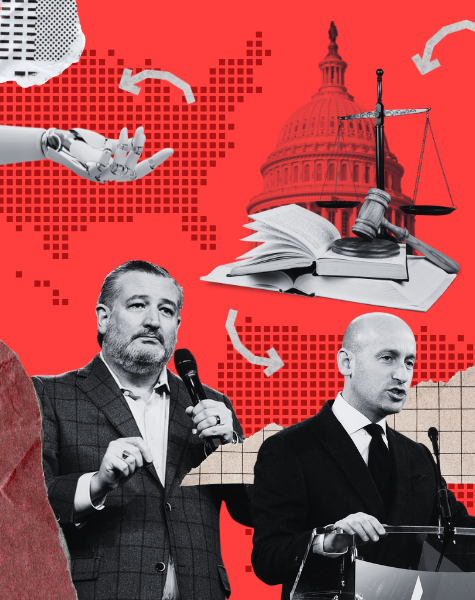
Republican attempts to pause state AI regulations via the catchall budget reconciliation bill died in a vote just after 4 a.m. Monday, but the larger fight over state preemption is just getting started.
In the absence of significant federal legislation regulating AI, states have stepped into the void, introducing and debating hundreds of bills to regulate the developing technology. Colorado advanced the ball even further, enacting the first-of-its-kind comprehensive AI legislation in 2024. But tech companies have started to fight back, including a failed attempt to scale back Colorado’s law.
The federal moratorium, which would have blocked states from enacting regulations on AI for 10 years, had a chaotic life as it bounced in and out of the One Big Beautiful Bill. Observers, and even some lawmakers, were shocked when it made its way into the version the House passed and sent to the Senate. Senate Commerce, Science, and Transportation Committee Chair Ted Cruz then had to make some adjustments to the ban to ensure it complied with Senate rules. Another slight adjustment kicked it out of the bill before yet another version was finally accepted by the Senate parliamentarian.
In a last-minute attempt to get Sen. Marsha Blackburn onboard, the moratorium shrunk to just five years, and some exceptions for child safety and intellectual property laws were added. But that was not enough. The provision died in a 99-1 vote, with even Cruz flipping to reject it, leaving only retiring Sen. Thom Tillis voting against the amendment that removed the bill.
But the tech industry and the think tanks they fund are not done fighting.
“We are disappointed by the Senate's retreat from supporting small businesses and innovation in AI,” said an emailed statement from Morgan Reed, president of the App Association, which boasts Amazon, Apple, and Google among its “sponsors.” “This is a setback for our members and other small tech companies that are the leading edge of AI solutions across every industry from healthcare to agriculture to supply chain management."
If history tells us anything, the fight for state preemption of AI law is far from over.
Despite it being wildly popular on both sides of the aisle, data privacy legislation has languished in the Senate thanks in part to disagreements over preemption of state privacy laws.
Lawmakers, particularly Republicans, have been talking about the need for preemption of state AI laws for more than a year as they contemplate what federal AI regulation would look like.
Sen. Todd Young, a Republican leader on AI regulation in the Senate, told National Journal in December that preemption of state laws was needed as part of any federal effort to regulate the technology. “This is a difficult issue, but clearly we need national standards,” Young said in an exclusive interview. “We need preemption, and we need to come up with clarity, especially around the issue of data privacy. This is not a new issue, but this is an increasingly urgent issue, and I'm committed to leaning in on this.”
Though with the AI moratorium, preemption moved from a theoretical ask to the defining battle line in the fight to regulate AI.
While a standalone preemption bill is unlikely in the future, preemption will likely be a part of any future federal AI legislation that hopes to get Republican votes. But much like the data privacy fight, Democrats will likely refuse preemption en masse, leaving Washington in a very familiar spot: Gridlocked.
—Philip Athey

Tech moves:
Top business operation takeaways:
- After falling behind in the early days of the generative AI revolution, Mark Zuckerberg and Meta are starting to spend big to poach top AI talent from rivals.
- Data centers and energy production for those data centers remain one of the limiting factors in expanding and improving AI, but Amazon is planning to spend big in Indiana to try to meet expected demand.
At Amazon’s biggest data center, everything is supersized for AI: To help power Anthropic’s AI advances, Amazon is in the process of building 30 giant data centers in Northern Indiana, more than doubling its current level of energy demand from the local energy provider. (New York Times)

